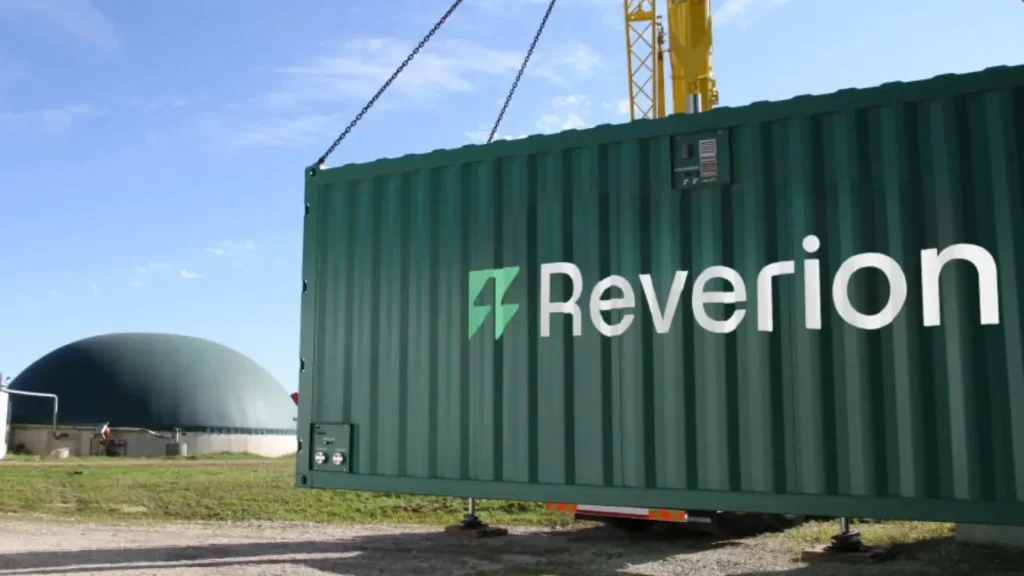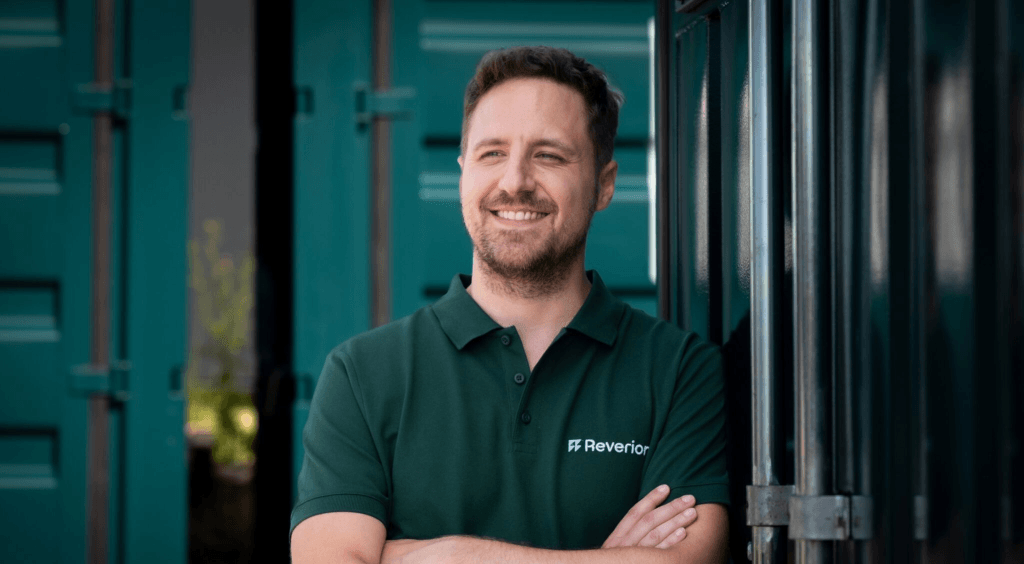Reverion Secures $41 Million in Carbon Removal Deals Led by Google, H&M

• Frontier buyers will pay $41 million for 96,000 tons of carbon removals from 2027–2030.
• Reverion’s system removes CO2 from both methane and biogenic CO2, doubling removal compared to conventional biogas use.
• Technology enables decentralized clean power, carbon storage and potential green hydrogen production at farm-scale.
Biogas becomes a new carbon removal frontier
A new set of carbon removal offtake agreements is pushing biogas into the centre of industrial climate strategy, as German climate technology company Reverion prepares to scale a fuel-cell-based process that both generates clean electricity and captures carbon for permanent storage.
Frontier, the advance market commitment founded by Stripe, Alphabet, Shopify, McKinsey and Meta, confirmed that its coalition of buyers will purchase 96,000 tons of carbon removal from Reverion between 2027 and 2030. The deal, valued at $41 million, brings a high-efficiency biogas-to-power pathway into the growing portfolio of engineered carbon removals.
Reverion’s technology uses solid oxide fuel cells (SOFCs) to convert methane-rich biogas into electricity with what the company describes as a record 74 percent electrical efficiency. Unlike conventional combined heat and power systems, Reverion’s process isolates a pure CO2 stream. Both the carbon originating from methane and the biogenic CO2 already present in the gas are captured and liquefied, enabling permanent geological storage. The company says that capturing carbon from both sources effectively doubles the removal potential of biogas.
Governance and climate context
Biogas is often viewed as a circular, low-carbon energy source, but it can still release CO2 and methane when burned or managed inefficiently. Methane traps more than 27 times the heat of CO2 over a century, according to the IPCC’s latest assessment. As countries push toward net-zero and explore pathways for negative emissions, biogas has resurfaced as a scalable, near-term option—particularly when linked with carbon capture and storage.
Scaling biogas production globally could deliver more than two gigatons of CO2 removal annually, according to Reverion. That potential has drawn attention from policymakers looking for distributed, agriculture-linked solutions that complement industrial carbon capture. Germany’s climate law and the EU’s broader greenhouse gas removal frameworks are creating early demand signals for technologies that can combine renewable power generation with carbon removal.
How the system works at farm level
Reverion’s units sit directly at biogas plants, typically located on farms that process manure, crop waste and food scraps through anaerobic digestion. The resulting biogas, a mix of methane and CO2, is fed into the SOFC system. The methane becomes electricity; the CO2 becomes a concentrated stream ready for liquefaction and transport to storage sites.
The company says the approach offers farmers multiple economic layers: electricity for onsite use or grid sale, carbon removal credits through offtake agreements, and optional hydrogen production. When electricity prices drop—often during periods of high wind and solar output—the system can shift into electrolysis mode, producing green hydrogen that farmers can sell or use.
Stephan Herrmann, Co-Founder and CEO of Reverion, described the new offtakes as an important step in proving the business case: “This offtake with Frontier buyers allows us to demonstrate that our approach to carbon removal can be economically viable on top of driving climate impact. Our technology converts biogas to electricity at 74% efficiency while capturing carbon for permanent storage. We’re focused on scaling this solution globally.”

RELATED ARTICLE: Frontier Commits $1.75M to Advance Ocean Alkalinity and Mineralization Carbon Removal Startups
Corporate demand expands beyond tech giants
The buyer list spans global technology firms and a broader set of corporates seeking high-quality carbon removals. Participants include Google, Stripe, Shopify, McKinsey Sustainability, Autodesk, H&M Group, and Workday. Through Frontier’s partnership with Watershed, additional buyers such as Aledade, Canva, Match Group, Samsara, SKIMS, Skyscanner, Wise, and Zendesk will also participate.
For corporates, the appeal lies in both the engineered permanence of geological storage and the co-benefits associated with better methane management—a critical factor as voluntary carbon markets place greater scrutiny on the durability and auditability of removals.
What executives should watch
For investors and sustainability leaders, the Reverion-Frontier agreement illustrates how quickly the carbon removal market is diversifying beyond direct air capture and mineralization. Farm-scale, dispatchable energy systems that deliver both renewable power and verified removals offer a different risk profile than large industrial projects that depend on centralised infrastructure and long development cycles.
The deal also highlights how corporate buyers are shaping early-stage climate technology markets by providing revenue certainty years before systems are deployed. That stability is becoming essential for companies like Reverion that rely on high-value engineering and long-term storage contracts.
A pathway with global relevance
As governments look for credible, near-term negative emissions options, biogas-linked carbon capture could play a role in both industrialised and emerging markets where agricultural waste is abundant. The technology aligns with EU and international discussions around certifying carbon removals, integrating distributed energy resources, and managing methane emissions from the agriculture sector.
The next challenge will be scale: ensuring that biogas supply chains, transport networks and geological storage capacity expand fast enough to match corporate demand. For now, the Reverion agreements suggest that distributed carbon removal—powered by farm waste and advanced fuel cells—may become a more prominent feature of the global climate technology landscape.
Follow ESG News on LinkedIn











